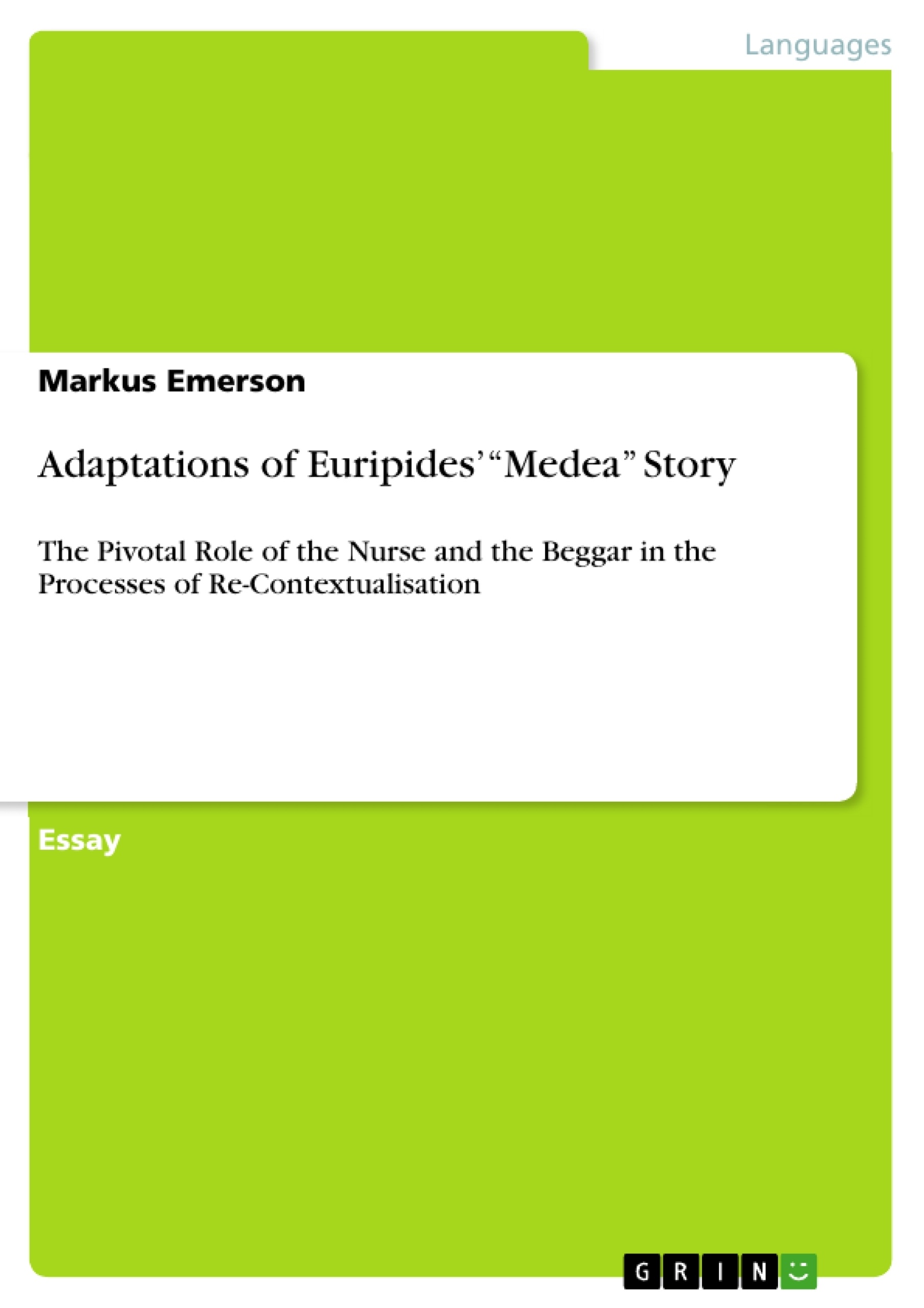Mythical literature depends upon, incites even, perpetual acts of reinterpretation in new contexts, a process that embodies the very idea of appropriation.
Euripides’ play “Medea”, based on a Greek myth about Medea has been made in a sheer endless number of new adaptations for the stage. Betrayed after leaving her home with Jason, Medea kills both her children. This core of the story usually remains but new contexts are explored in the appropriation and re-interpretation of the original. The power of such new adaptations partly comes from a sense of immediacy that is created through a connection between stage and real life of the audiences. This connection is reached through contextualisation of the performance. Through the addition of new layers of meaning, directors of the ‘new’ Medea stories give the plays new contexts in time and space. In the following essay, I argue that this contextualisation and adding of new layers can be reached through the aesthetic choices about marginal characters like the nurse and the inclusion of a figure like the beggar. Their presence adds depth and complexity to the new issues that are explored in the Medea stories.
Table of Contents
- Adaptations of Euripides' Medea Story - The Pivotal Role of the Nurse and the Beggar in the Processes of Re-Contextualisation
- Introduction
- The Nurse
- The Beggar
- Conclusion
Objectives and Key Themes
This essay aims to explore the role of marginal characters, particularly the nurse and the beggar, in recontextualizing adaptations of Euripides' Medea. By analyzing the contributions of these characters in both Magnuson's African Medea and Fleishmann's Medea, the essay demonstrates how these figures enrich the plays' new contexts, offering different perspectives and fostering deeper audience engagement.
- The impact of marginal characters on the recontextualization of Medea adaptations
- The role of the nurse in creating new contexts and providing nuanced perspectives
- The beggar's contribution to enhancing the credibility and complexity of the plays' settings
- The use of language, symbolism, and performance traditions in recontextualizing the myth
- The connection between the plays and broader social and political issues
Chapter Summaries
The essay begins by introducing the concept of re-contextualization in mythical literature, highlighting the importance of connecting stage performances to the real lives of audiences. The following sections delve into the roles of the nurse and the beggar in two specific adaptations of Medea: Magnuson's African Medea (1967) and Fleishmann's Medea (1994).
The essay examines how the nurse figure in both plays serves as an additional voice and narrator, providing insight into the lives of Medea and Jason. The nurse's perspective, while seemingly marginal, offers a detached and objective view of the action, contributing to the complexity and credibility of the new contexts.
The essay then explores the role of the beggar in Magnuson's African Medea. The beggar, as a marginalized figure, contributes to the play's depiction of societal complexity and offers a critical commentary on the events. His presence connects the play to broader issues of violence, forgiveness, and revolution, further enriching the contextualization of the myth.
Keywords
Key words and concepts explored in the essay include: adaptations of Medea, recontextualization, marginal characters, nurse, beggar, colonial context, post-apartheid South Africa, language, symbolism, performance traditions, social and political issues, societal complexity, revolution, and audience engagement.
Frequently Asked Questions
How is Euripides' "Medea" recontextualized in modern adaptations?
Modern adaptations often place the ancient myth into new social and political settings, such as colonial Africa or post-apartheid South Africa, to explore contemporary issues.
What is the role of the nurse in Medea adaptations?
The nurse often serves as a narrator or detached observer, providing an objective perspective on the tragic events and bridging the gap between the audience and the protagonists.
Why is the character of the beggar important in "African Medea"?
The beggar represents societal complexity and marginalized voices, offering critical commentary on violence, revolution, and the social order within the play.
How do marginal characters add depth to the Medea myth?
By focusing on characters like the nurse or beggar, directors can add layers of meaning and foster deeper audience engagement with broader political and social themes.
What is the core story of Medea that remains in adaptations?
The central theme usually remains Medea's betrayal by Jason and her subsequent choice to kill their children, though the motivations and context vary by adaptation.
- Quote paper
- Markus Emerson (Author), 2011, Adaptations of Euripides’ “Medea” Story, Munich, GRIN Verlag, https://www.grin.com/document/310564



